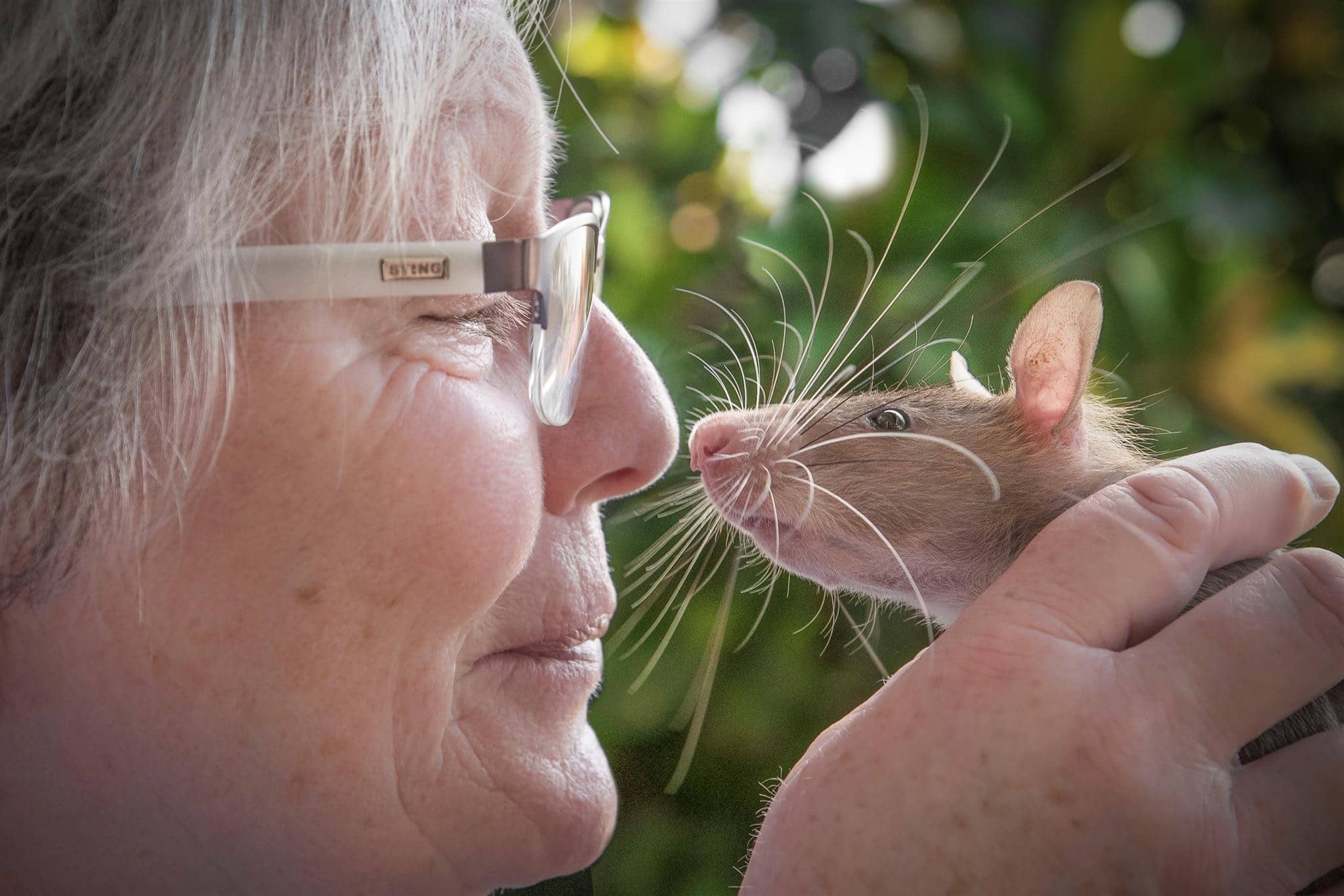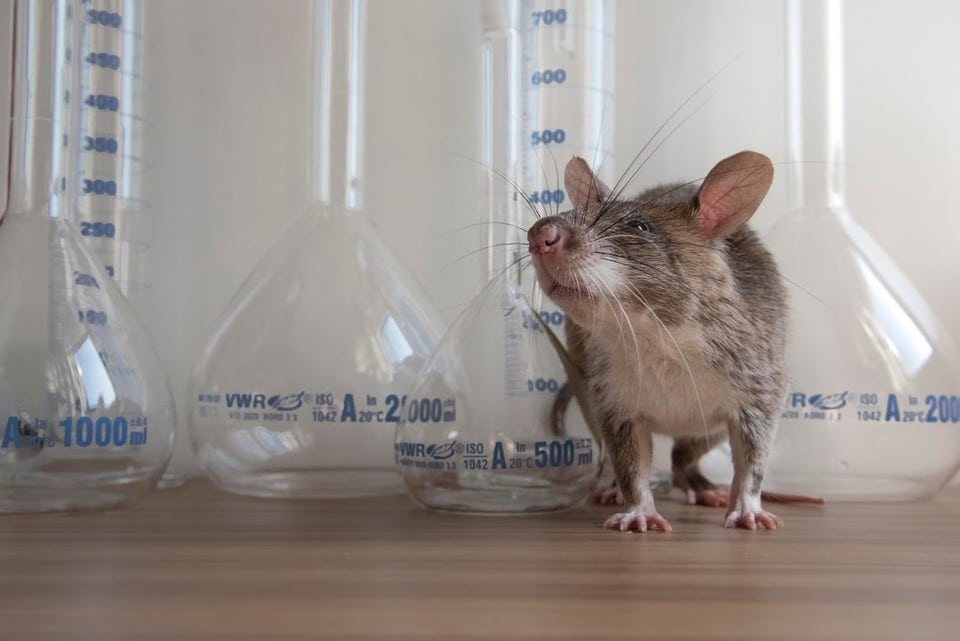

Joy Milne visits the APOPO training center in Tanzania.
“Joy Milne is better known as The woman who can smell Parkinson’s. In December, I saw Joy’s media appearances and learned about her collaboration with Edinburgh and Manchester Universities. At the 2018 People’s Postcode Lottery annual Charity Gala in Edinburgh, I met her and Dr Tilo Kunath. I took the opportunity to invite Joy to visit APOPO in Tanzania.
There is currently no definitive test (such as a blood test) to make a diagnosis of Parkinson’s disease. Instead, a doctor takes a careful medical history and performs a thorough neurological examination, looking in particular for a combination of symptoms to be present. It remains an incredibly difficult disease to diagnose. Joy’s own husband contracted the disease but she only discovered she could smell it after she had joined a Parkinson’s charity and met other people suffering from the disease around whom existed the same musky smell. Joy had actually noticed this odor around her husband years before he was diagnosed. By chance she mentioned this observation to scientists at a talk and they were fascinated.
Dr. Tilo Kunath, a Parkinson’s UK fellow at the MRC Centre for Regenerative Medicine, Edinburgh decided to test Joy’s sense of smell by using t-shirts which had been worn by six people with Parkinson’s and six without. She not only correctly identified the six positive samples but she pointed out that one of the control six had the smell as well. A few months later the t-shirt owner was diagnosed with Parkinson’s.
Dr. Kunath then enlisted the help of Prof Perdita Barran, an expert in chemical analysis from the School of Chemistry Manchester University, to try to isolate the molecules that form the scent that Joy is able to smell. Prof. Perdita Barran and her team discovered that people with Parkinson’s seem to have different molecules in the scent bouquet, which it is what Joy is able to identify simply through smell.

Joy had already heard about APOPO and she accepted my offer to visit our research and development headquarters in Tanzania, see the HeroRATs in action and meet our R&D and TB research team headed by Dr. Cindy Fast and Dr. Lena Fiebig. Joy spent a week with us learning about our scent detection work and kindly sharing her own experiences and knowledge. Unlike our rats, Joy can communicate directly with us and her observations were very interesting food for thought. For example Joy closely observed the rats sniffing behavior and made several recommendations related to their behavior and other conflicting scents in the working environment. We also learned a lot from her methodic approach using her analytical olfaction capacity in combination with a spectrometer to identify the volatiles of disease.
Joy’s visit was extremely interesting and helpful and we hope to have her back in the near future so that we can direct her to a more focused study from which I believe we will learn a great deal. Science aside, Joy is a wonderful woman whose generosity with her time and knowledge made her an absolute pleasure to host.”

